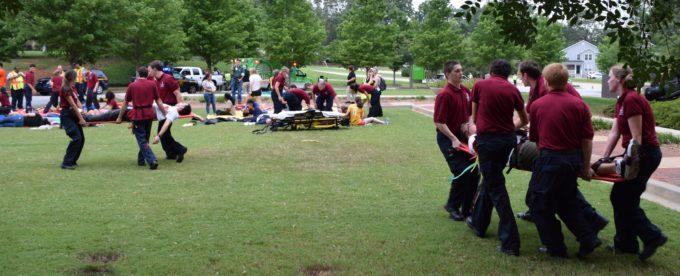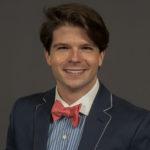
Get the latest articles delivered directly to your inbox!
Our Contributors
Class of 2022
Kyle Duke
Austin Foster
Charlotte Leblang
Ross Lordo
Class of 2021
Dory Askins
Connor Brunson
Keiko Cooley
Mason Jackson
Class of 2020
Megan Angermayer
Carrie Bailes
Leanne Brechtel
Hope Conrad
Alexis del Vecchio
Brantley Dick
Scott Farley
Irina Geiculescu
Alex Hartman
Zegilor Laney
Julia Moss
Josh Schammel
Raychel Simpson
Teodora Stoikov
Anna Tarasidis
Class of 2019
Michael Alexander
Caitlin Li
Ben Snyder
Class of 2018
Alyssa Adkins
Tee Griscom
Stephen Hudson
Eleasa Hulon
Hannah Kline
Andrew Lee
Noah Smith
Crystal Sosa
Jeremiah White
Jessica Williams
Class of 2017
Carly Atwood
Laura Cook
Ben DeMarco
Rachel Nelson
Megan Epperson
Rachel Heidt
Tori Seigler
Class of 2016
Shea Ray
Matt Eisenstat
Eric Fulmer
Geevan George
Maglin Halsey
Jennifer Reinovsky
Kyle Townsend
Join USCSOMG students on their journeys to becoming exceptional physician leaders.

Truth in Medicine
In medicine, the truth hurts. Sometimes. It is complex, multifaceted and murky. Often. It is ugly. Occasionally. It must guide you as you relate to patients, announce good or bad news, and come up with a differential and a diagnosis. Always.
Not so in the field I came from before starting at USCSOMG. As a non-traditional applicant to medical school, I spent the last five years since graduating from college working in filmed entertainment. That business has a sometimes tenuous relationship with reality. It is the land of make-believe, where everything and anything is possible and where you can never aim too high or dream too big.
As a producer, I was groomed, bred and taught to put a positive spin on everything I undertook. If I went to a studio to pitch a movie project, but it didn’t respond to the needs of the executive in charge, my instinctive response might have been to say something like: “Oh, it’s no problem! We can do that! That’s a very easy fix.” I developed the tools, stamina and gung-ho attitude that can make you feel like you can make almost anything happen. So I went back to the office, made some phone calls, racked my brains and figured. It. Out.
Now imagine that reply transplanted to medicine. After you have shared the difficult news with your patient that he has an aggressive stage four cancer, he asks you if there is anything that you, the medical professional, can do, and is he going to make it? And you respond: “Oh, it’s no problem! We can do that! That’s a very easy fix.” I don’t think so.
USCSOMG is one of only a handful of schools in the country where every first-year medical student becomes certified as an Emergency Medical Technician. As part of the skills being instilled in us, we are taught to provide reassurance and comfort to the patient, but never to mislead or lie to them. Although such a principle seems straightforward and obvious, I cannot begin to describe how tempting it was, on my first ambulance shift, to tell the victim we extricated from a car wreck, who was mentally distressed with visible injuries: “Everything’s going to be fine!”
That statement expresses a wish. But at that point, all we could count on were facts, which it was our responsibility to gather and annotate. When did the car crash happen? Did you have anything to drink tonight? What is the patient’s pulse, blood pressure, respiratory rate and glucose level? Does the patient display any visible contusions, abrasions, penetrations, lacerations or burns?
Far from being obstacles, facts are allies that can lead you. They can be unpleasant and unkind, or they can be encouraging and promising. In either case, they are what you work with, the baseline from which you begin your assessment. You seek to improve the patient’s well-being, but you must communicate to him or her – kindly, respectfully, empathetically – the truth as it is. And although that is not a revolutionary concept in and of itself, it is a liberating, uplifting and heartening one. I’m excited to be embarking on this journey, always guided by the truth, where patient-centered care is the foremost priority.
Alexis del Vecchio is a graduate of Yale where he majored in Theater Studies. He was a professional voice-over actor before college. Since graduation, he has produced television movies, acted in national commercials, seen his original plays performed on both coasts, and founded two companies in the educational field. He has lived in Florida, Maryland, Connecticut and California, and now calls Greenville home. He never wants to leave South Carolina – why would anyone want to live anywhere else? – and is thrilled and grateful to attend USCSOMG.
Copyright 2021 USC School of Medicine Greenville


